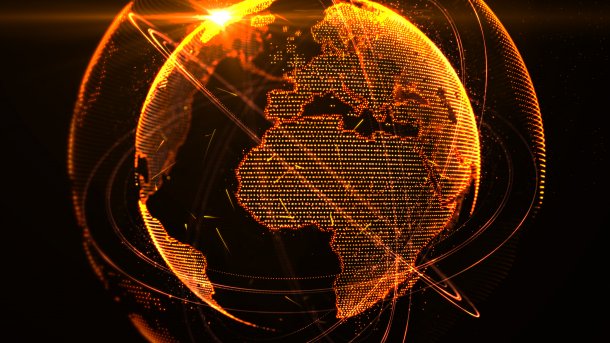IRIS2: Government unaware of 12 billion cost of EU satellite project
There is a large gap between the government's knowledge of the total costs of the Starlink alternative IRIS2 and reports on the corresponding amount.

The German government is unaware of the 12 billion euros that the IRIS2 satellite project is expected to cost, according to media reports.
(Image: Anton Chernigovskii/Shutterstock.com)
The German government has not confirmed reports that the total cost of the European satellite project IRIS2 will be twelve billion euros. This emerges from a recently published response from the executive to a question from the CDU/CSU parliamentary group in the Bundestag, in which it continues to assume "estimated total costs of the program" for the public sector of 2.4 billion euros with reference to the EU's medium-term financial planning (MFF).
The future operating costs of the Starlink alternative are not yet known. The award procedure is still ongoing. According to the latest statements from the EU Commission, the concrete selection procedure will be postponed until the third quarter of 2024.
EU Commission only expects six billion euros
The Commission initially estimated the total financial outlay for the satellite project at around 6 billion euros. A total of 2.4 billion euros would be available as public funding, which would come from the EU space program, Horizon Europe and other funding pots, among others, according to Brussels in 2023. The remaining 3.6 billion euros would come from the private sector.
A consortium of European space and telecommunications companies under the leadership of Airbus, including Eutelsat, Hispasat, SES, Thales, Deutsche Telekom, Orange and OHB from Bremen, intends to set up IRIS2. This SpaceRise alliance has now called for a price tag of almost 12 billion euros to get the network of up to 170 satellites up and running between 2025 and 2027, wrote the FAZ.
Federal Minister of Economics: 12 billion euros is "exorbitant"
Federal Economics Minister Robert Habeck (Greens) is said to have criticized the increase as "exorbitant" and called for the initiative to be restarted. In the current response, however, the House he heads only refers to a discussion between the head of department and the recently resigned EU Internal Market Commissioner Thierry Breton, which took place "in a good and confidential atmosphere". According to the statement, the German government also welcomes the procedure initiated by the Commission "to optimize the industrial offer from March". This is aimed at "improvements in the areas of project scope, governance, costs and private investment".
The FAZ recently referred to an agreement that had been reached in essence, according to which the private sector financing pillar of the program would bear a substantial share of the additional costs at five billion euros. The state pillar would account for a total of seven billion euros. There were also rumors that Airbus and Thales Alenia had announced their withdrawal from the project.
The government has not commented on this or, according to its information, has no relevant knowledge. Germany will contribute 56 million euros to IRIS2 in 2025. This sum has been earmarked in the federal government's draft budget. Two million euros had been budgeted for 2024. As the largest supporter, France has earmarked 300 million euros for the planned IRIS2 support program of the European Space Agency (ESA).
Videos by heise
BKA is interested in IRIS2 services
According to the government, European launchers such as Ariane 6 and the launch sites in Kourou, Norway or Scotland ensure that the satellites can be launched into space. There are therefore no plans to provide assistance for the construction or operation of spaceports in the territory of the Federal Republic of Germany, but commercially viable projects in this area are welcome. The Federal Criminal Police Office (BKA) is actively involved in the planning processes for IRIS2 and is generally interested in its services, the executive explains.
It currently uses global navigation satellite systems such as GPS, Galileo, Glonass and Beidou in parallel. The government does not provide information on the requirements of other police authorities and the federal intelligence services, citing "interests worthy of protection". Nationally, there are no considerations for the launch of a satellite internet program in the event of the possible failure of IRIS2.
(nen)